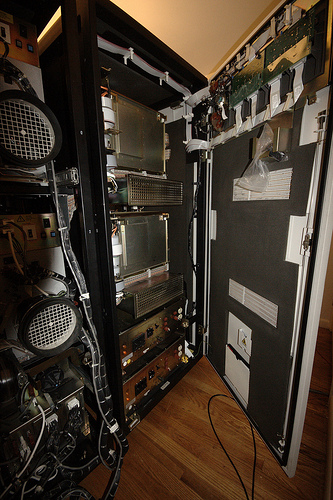 You’re attached to your mainframe. It’s literally part of your company’s legacy. It’s powerful, reliable, secure. And now that your company has grown into a sizeable global enterprise, your mainframe operations are just too big to outsource. Right? Well, not so fast.
You’re attached to your mainframe. It’s literally part of your company’s legacy. It’s powerful, reliable, secure. And now that your company has grown into a sizeable global enterprise, your mainframe operations are just too big to outsource. Right? Well, not so fast.
The truth is, your mainframe is not too big to outsource. And you could reap substantial benefits from making that transition. You haven’t grown your company by basing critical decisions on unverified assumptions, and it’s unwise to write off outsourcing without fully investigating the pros and cons. You could be leaving money and opportunity lying on the table, where your competition could snatch them up.
Here are five reasons your mainframe isn’t too big to outsource:
1. This isn’t uncharted territory.
Mainframe outsourcing isn’t some untested new idea. It’s been around for decades, so it’s well-established as a low-risk alternative, even for organizations that handle enormous volumes of data on a national or international scale.
So you’re not the first among your peers to consider outsourcing. In fact, many of the world’s largest private and government installations have long since made the move. And it’s been a proven success, helping them efficiently and reliably serve the internal and external customers that rely on them.
2. Theirs is bigger than yours. Buying power, that is.
Housing and maintaining redundant systems is expensive and unproductive. And rising IT operations costs are killing your margins. That can hamstring your company’s ability to grow and meet your goals.
At the volumes mainframe outsourcing providers handle, they can negotiate lower rates than you’re paying, and those economies of scale work in your favor. You’re not too big to outsource, because you’re never too big to save money.
3. The bigger you are, the more you have to lose.
Worried you have too much at stake to rely on a third party? The reality is, study after study shows potential security lapses or loss of overall control are not the problems you may think they are. Certainly, physical and data security are paramount. Multiple far-flung locations and a mobile workforce increase your challenges, as does the need to deliver quality goods or services – consistently and reliably – to keep customers happy and loyal.
When you have more to lose, you have more to protect. Mainframe outsourcing enables you to create a more effective disaster recovery plan at substantially reduced cost.
You have to protect your ability to function under normal circumstances, too. You cannot afford to ignore the “elephant” in your data centers -- aging legacy infrastructure and a shortage of newly-minted IT personnel who can speak your mainframe’s language. Mainframe outsourcing provides the equipment and expertise to put you on solid footing for the future, before your operations start to slide downhill.
4. Big shouldn’t mean scattered.
Do you really want to be in the IT business? Because the more time and resources you put toward purchasing and maintaining mainframe infrastructure and related activities, the less you have to devote to your core work. Your competition is busy refreshing their product line and fortifying their client relationships. They could be carving you out of the picture while you’re busy fretting over the future of your mainframe operations.
5. Things change.
Your enterprise has to change with the times, or you’ll cease to be a factor in the marketplace. Unrealistically holding on to the-way-we’ve-always-done-things won’t work. You can’t rely on sheer size and a well-established corporate persona to muscle your way into the future. You have to be nimble, to quickly respond to constant change from any direction. That requires vision and an entrepreneurial approach – the sort of flexibility you can only get with mainframe outsourcing.
Consider this: the dinosaurs were big, too, but ultimately they couldn’t adapt to their changing environment. And now they’re gone. If you continue to think you’re too big to outsource, you too could become extinct.
Photo Credentials: vaxomatic via Flickr

